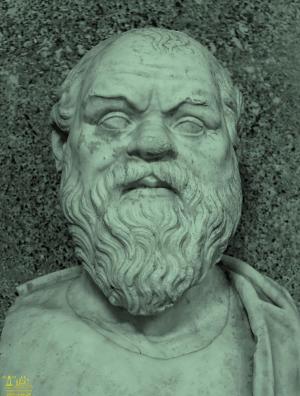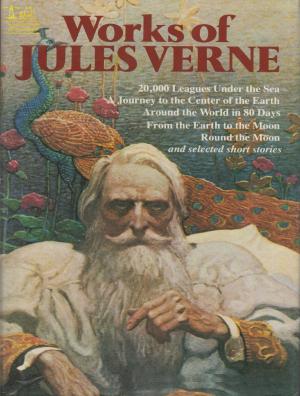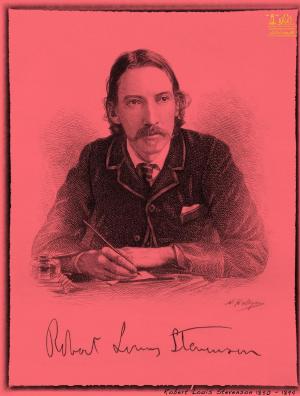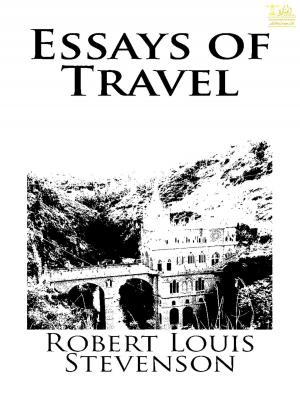| Author: | Henry Stephens Salt | ISBN: | 9780599543485 |
| Publisher: | Lighthouse Books for Translation Publishing | Publication: | June 2, 2019 |
| Imprint: | Lighthouse Books for Translation and Publishing | Language: | English |
| Author: | Henry Stephens Salt |
| ISBN: | 9780599543485 |
| Publisher: | Lighthouse Books for Translation Publishing |
| Publication: | June 2, 2019 |
| Imprint: | Lighthouse Books for Translation and Publishing |
| Language: | English |
THE tales of travellers, from Herodotus to Marco Polo, and from Marco Polo to the modern “globe-trotter,” have in all ages been subject, justly or unjustly, to a good deal of suspicion, on the ground that those who go in quest of curious information among outlandish tribes are likely in the first instance to be imposed on themselves, and in the sequel to impose on their readers. No such doubt, however, can attach to the following record, for I am myself a native of the land whose customs are described by me. I cannot think that my story, true as it is, and admitting of corroboration by the similar witness of others, is any the less adventurous on that account; for, like previous writers who have recorded certain startling discoveries, I, too, have to speak of solitudes and remotenesses, vast deserts and rare oases, inextricable forests and dividing gulfs; and such experiences are none the less noteworthy because they are not of the body but of the mind. At any rate, the tale which I have to tell deals with incidents which have had a very real significance for myself—quite as real as any of those related by the most venturesome of voyagers.
The seventy years spent by me among savages form the subject of this story, but not, be it noted, seventy years of consciousness that my life was so cast, for during the first part of my residence in the strange land where I was born, the dreadful reality of my surroundings was hardly suspected by me, except now and then, perhaps, in a passing glimmer of apprehension. Then, by slow degrees, incident after incident brought a gradual awakening, until at last there dawned on my mind the conviction which alone could explain and reconcile for me the many contradictions of our society—that we were not “civilized” but “savages”—that the “dark ages,” far from being part of a remote past, were very literally present.
And here, in explanation of my long blindness to an unwelcome truth, it must be remarked that there is a fixed and almost insuperable superstition among my savage fellow-islanders—and, indeed, among all the surrounding nations—that they are a cultured and highly civilized race, living in an age which has wholly emerged from the barbarism of their forefathers, the “good old times” to which some of them even affect to look back with feelings of pious regretfulness. It was this delusion, to which I was at first fully subject, that made it so difficult for me to see things in their true light, and still makes it wellnigh impossible to communicate the truth to others, except to those whose suspicions have in like measure been aroused. In reality, it will be seen, the difference between the earlier “barbarism” and the later so-called “civilization” is, in the main, a mere matter of the absence or presence of certain intellectual refinements and mechanical sciences, which, while largely altering and complicating the outward conditions of life, leave its essentially savage spirit almost entirely untouched.
THE tales of travellers, from Herodotus to Marco Polo, and from Marco Polo to the modern “globe-trotter,” have in all ages been subject, justly or unjustly, to a good deal of suspicion, on the ground that those who go in quest of curious information among outlandish tribes are likely in the first instance to be imposed on themselves, and in the sequel to impose on their readers. No such doubt, however, can attach to the following record, for I am myself a native of the land whose customs are described by me. I cannot think that my story, true as it is, and admitting of corroboration by the similar witness of others, is any the less adventurous on that account; for, like previous writers who have recorded certain startling discoveries, I, too, have to speak of solitudes and remotenesses, vast deserts and rare oases, inextricable forests and dividing gulfs; and such experiences are none the less noteworthy because they are not of the body but of the mind. At any rate, the tale which I have to tell deals with incidents which have had a very real significance for myself—quite as real as any of those related by the most venturesome of voyagers.
The seventy years spent by me among savages form the subject of this story, but not, be it noted, seventy years of consciousness that my life was so cast, for during the first part of my residence in the strange land where I was born, the dreadful reality of my surroundings was hardly suspected by me, except now and then, perhaps, in a passing glimmer of apprehension. Then, by slow degrees, incident after incident brought a gradual awakening, until at last there dawned on my mind the conviction which alone could explain and reconcile for me the many contradictions of our society—that we were not “civilized” but “savages”—that the “dark ages,” far from being part of a remote past, were very literally present.
And here, in explanation of my long blindness to an unwelcome truth, it must be remarked that there is a fixed and almost insuperable superstition among my savage fellow-islanders—and, indeed, among all the surrounding nations—that they are a cultured and highly civilized race, living in an age which has wholly emerged from the barbarism of their forefathers, the “good old times” to which some of them even affect to look back with feelings of pious regretfulness. It was this delusion, to which I was at first fully subject, that made it so difficult for me to see things in their true light, and still makes it wellnigh impossible to communicate the truth to others, except to those whose suspicions have in like measure been aroused. In reality, it will be seen, the difference between the earlier “barbarism” and the later so-called “civilization” is, in the main, a mere matter of the absence or presence of certain intellectual refinements and mechanical sciences, which, while largely altering and complicating the outward conditions of life, leave its essentially savage spirit almost entirely untouched.















